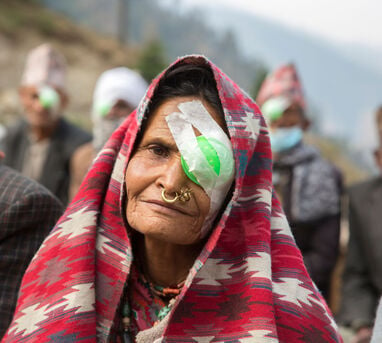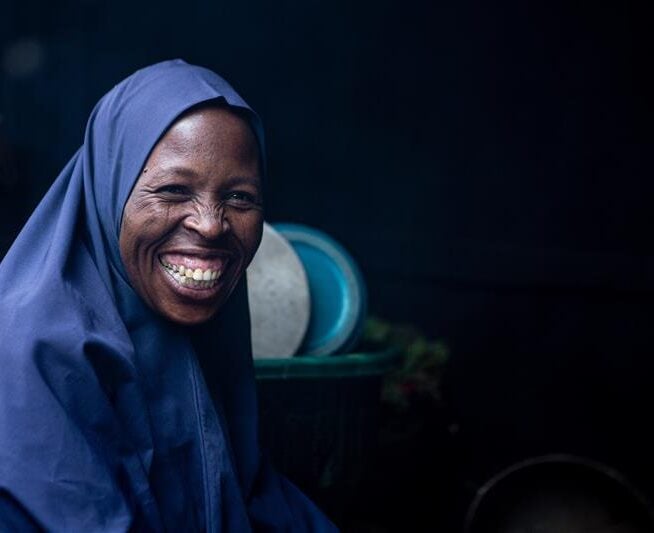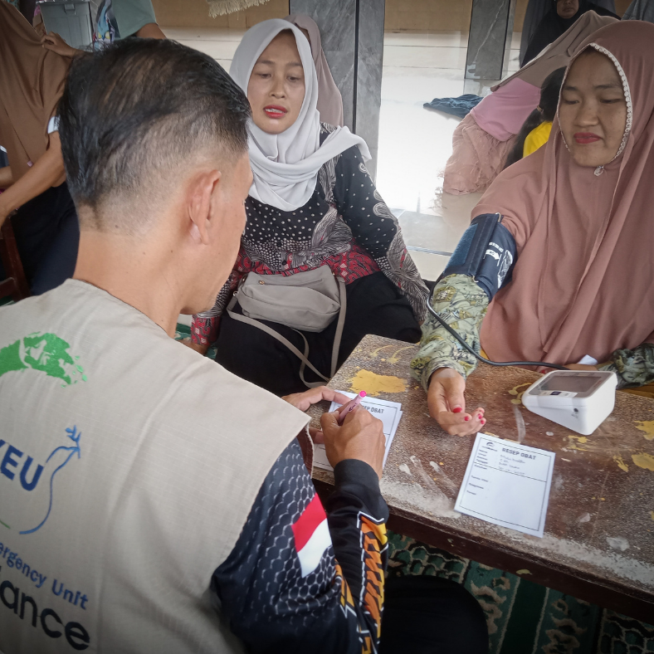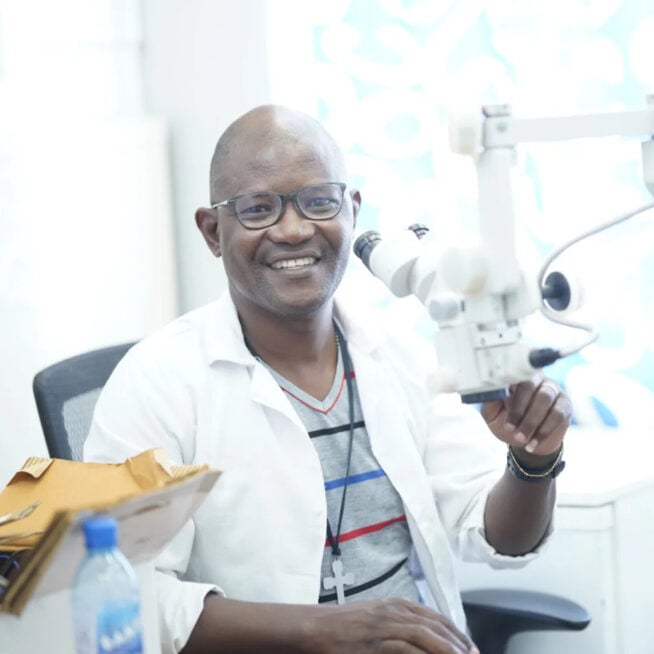November’s budget announcement has confirmed the continued roll-back of of UK Aid funding. This comes at a time when conflict and climate change are widening inequalities and burdening the most marginalised – particularly people with disabilities Here CBM UK reiterates the vital role that well-targeted, inclusive and locally led UK Aid funding plays, and why now is not the time to retreat.
To break the cycle of poverty and disability, inclusive development is not optional

The UK government’s decision to cut back foreign aid to fund an increase in the defence budget delivered a huge blow to the “leave no one behind” promise. The roll back of ODA (Official Development Assistance) from 0.5% to 0.3% of Gross National Income is a cut of around 40%. It marks the lowest level of international aid the UK has contributed in over a quarter of a century.
The cut reduces an aid budget where, by the government’s own assessment, less than 1% of UK aid specifically targets people with disabilities. Only about one-third of projects include any disability-related focus at all.[i]
We know the challenges faced in the world’s poorest countries – and especially by people with disabilities living within them – are growing, not diminishing. Despite the Chancellor’s budget announcement, now is not the time for the UK to retreat.
Why ODA cuts matter for people with disabilities
- There are well over one billion people worldwide with disabilities. The vast majority live in low- and middle-income countries.
- Cuts to ODA risk reversing progress made. Women, men, girls and boys with disabilities already face multiple barriers accessing health services, education, employment and disaster resilience. The UK has been integral to funds and initiatives that have contributed to advances in addressing these challenges. 50 million more girls are going to school than in 2015 and over 30 million people now have access to life-saving HIV treatment.[ii] The reduction in funding puts those and other gains at risk.
- The UK government’s own equality impact assessment warns that cuts to health and basic services will increase disease burden and risks of death. This will particularly affect people living in poverty, women, children and people with disabilities.
- With fewer resources, there is less money to invest in accessible healthcare, assistive technology and inclusive education. The result is that people with disabilities are pushed further behind.[iii]
What the UK aid cut means
The 0.3% target signals a big step back by the UK from its previously much more ambitious role in global development. This reversal comes when the global context is already fragile. Conflict, climate change, pandemics and growing inequality all place extra burden on the people most marginalised.
While the cut is a serious setback, it must not be accepted as the new normal. In a changed funding environment, we believe the value of a targeted, disability-inclusive, locally led approach becomes even more important. It means every remaining pound of UK aid must deliver maximum impact for disability inclusion, not least because inclusive development delivers long-term and sustainable value for all stakeholders.
What CBM UK calls for
- The Government to prioritise funding that targets those with overlapping inequalities. For example women or children with disabilities, in line with the “Leave No One Behind” promise of the Sustainable Development Goals.
- The Government to make every effort to return to spending a minimum of 0.5% of GNI on international aid, and ideally to 0.7% as stipulated by the 2015 International Development Act. There should be a clear plan for implementing this.
- Philanthropic trusts, foundations and individuals to increase grant making opportunities. These can offer the agility, innovation and blue sky thinking to deliver significant impact if they are well-targeted, locally led and inclusive.
- The development sector to prioritise partner-led projects with local communities and leaders. This means putting representative groups such as Organisations of Persons with Disabilities (OPDs) at the heart, so that every pound spent effectively supports disability inclusion, rights and agency.
CBM UK remains committed to working alongside people with disabilities, local OPDs and disability-led organisations globally to ensure that no one is left behind. Our conviction is unchanged: inclusive development is not optional. It is essential to break the cycle of poverty and disability.
[i] https://committees.parliament.uk/publications/44124/documents/218767/default/, paragraph 34
[ii] FROM PROGRESS TO POSSIBILITY: INTRODUCING THE BE HOPE CAMPAIGN – The Global Goals
[iii] https://www.gov.uk/government/publications/fcdo-official-development-assistance-programme-allocations-2025-to-2026-equality-impact-assessment/equality-impact-assessment-of-official-development-assistance-oda-programme-allocations-for-2025-to-2026#:~:text=Overall%2C%20any%20reductions%20to%20health%20spending%20risk%20an%20increase%20in%20disease%20burden%20and%20ultimately%20in%20deaths%2C%20impacting%20in%20particular%20those%20living%20in%20poverty%2C%20women%2C%20children%20and%20people%20with%20disabilities.%C2%A0



